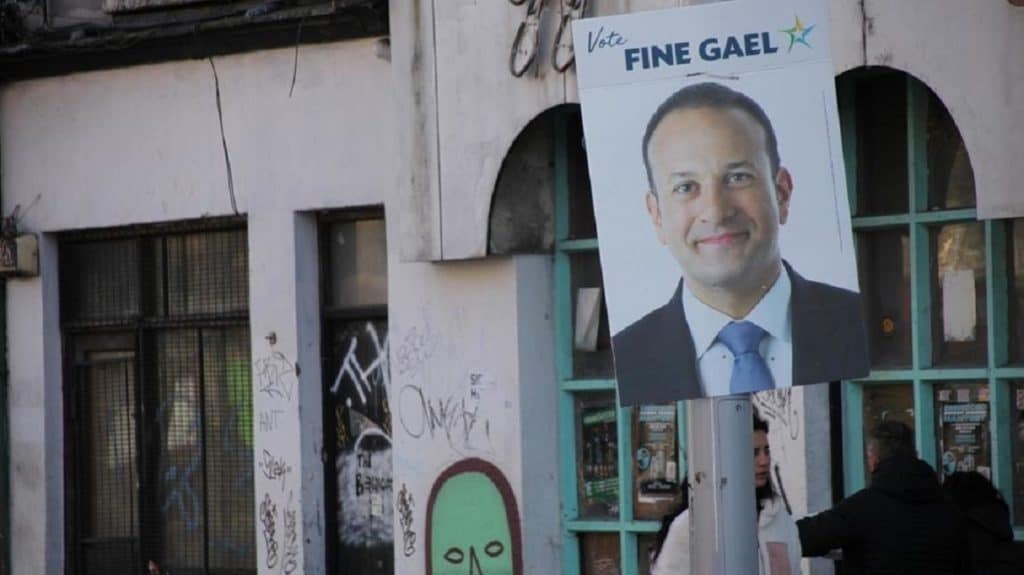By Denis Korkodinov
On February 8, 2020, general elections will be held in Ireland. This decision was officially announced by Prime Minister Leo Varadkar in connection with the upcoming Brexit procedure, which has been officially launched in the UK on January 31, 2020. The main question that Ireland now faces is the redefinition of its relations with London and EU.
Irish Prime Minister Leo Varadkar is currently representing the minority government, which was formed in 2016 as a result of a trust agreement between the Fine Gael and Fianna Fail parties. The need for early voting in Ireland would not have arisen in the short term, if not for the haste of the British government, led by Boris Johnson, to begin secession from the European Union.
In this regard, Irish politicians were forced to urgently determine their position in the changing political landscape. However, it would be extremely difficult to do this without the formation of a new cabinet of ministers of Ireland.
The problem is that there is currently some disagreement in the Irish government regarding trade cooperation with the UK and the EU after Brexit. For this reason, no political party can form a majority coalition. In particular, according to recent opinion polls, the level of trust in the Fine Gael and Fianna Fail parties is approximately the same. Meanwhile, in terms of popularity, they are overtaken by the Sinn Fein party, which advocates nationalist slogans that clearly appeal to ordinary voters.
Apparently, the Irish need a change of government. This is due, among other things, to high housing prices, problems in the healthcare system and a deterioration in the quality of life. In turn, according to sources, voters were dissatisfied with the policies of Leo Varadkar, who was so keen on sorting out relations with London that he stopped paying attention to internal problems.
In this regard, the alleged victory of the Fine Gael party in the upcoming elections is unlikely. Meanwhile, according to analysts, the political situation in Ireland is such that it’s quite difficult to determine what the face of the new government will be, because the election promises of party leaders have a great influence on fluctuations in electoral moods.
However, it is obvious that not a single political party will receive a majority. Therefore, to form a capable government, they will have to create coalitions in which, along with the Sinn Fein, the Green Party is most likely to be represented, as well as independent candidates, mainly defending the rights of women, youth and, oddly enough, sexual minorities. Based on this, there is no doubt that the new Irish government will be very motley, since it will represent almost all political groups and individual characters who have a certain influence in society.
Currently, about 12% of Irish voters support Fine Gael, believing that this party will be able to solve the housing problems facing the state. Approximately the same percentage of voters won the party “Fianna Fail”.
According to opinion polls, Sinn Fein have been rapidly increasing their position in the ranking over the past week, reaching 19% of the total number of voters. The Green Party has the support of approximately 8% of Irish people, while independent candidates also try to keep up and are actively gaining trust in Irish society.
Thus, a coalition between Fianna Fail and Fine Gael is almost inevitable, because they are close in their political views and have a significant number of supporters. Nevertheless, such a coalition, according to experts, can receive no more than 20 percent of the total number of seats in the government. “Sinn Fein”, most likely, is assigned to play the role of a political “pendulum”, depending on the situation being consolidated either with the Fianna Fail” – Fine Gael block, or with other members of the Irish government.
As for independent candidates, with a high degree of probability, within the framework of the new cabinet, they have practically no chance to remain independent figures, which is why they can unite in a union that will oppose the Fianna Fail bloc – Fine Gael”
(The opinions expressed in this article are solely those of the author and do not necessarily reflect the views of World Geostrategic Insights)
Image Credit: RFI/Jan van der Made/Source RFI







